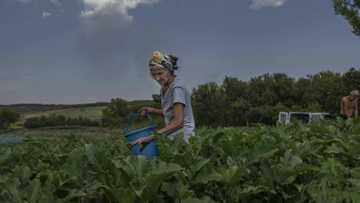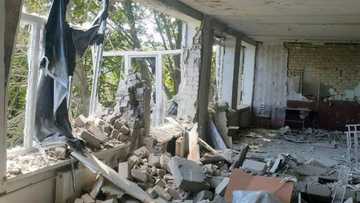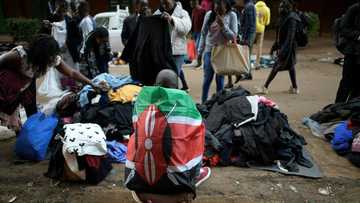Community tensions split tug-of-war towns in eastern Ukraine
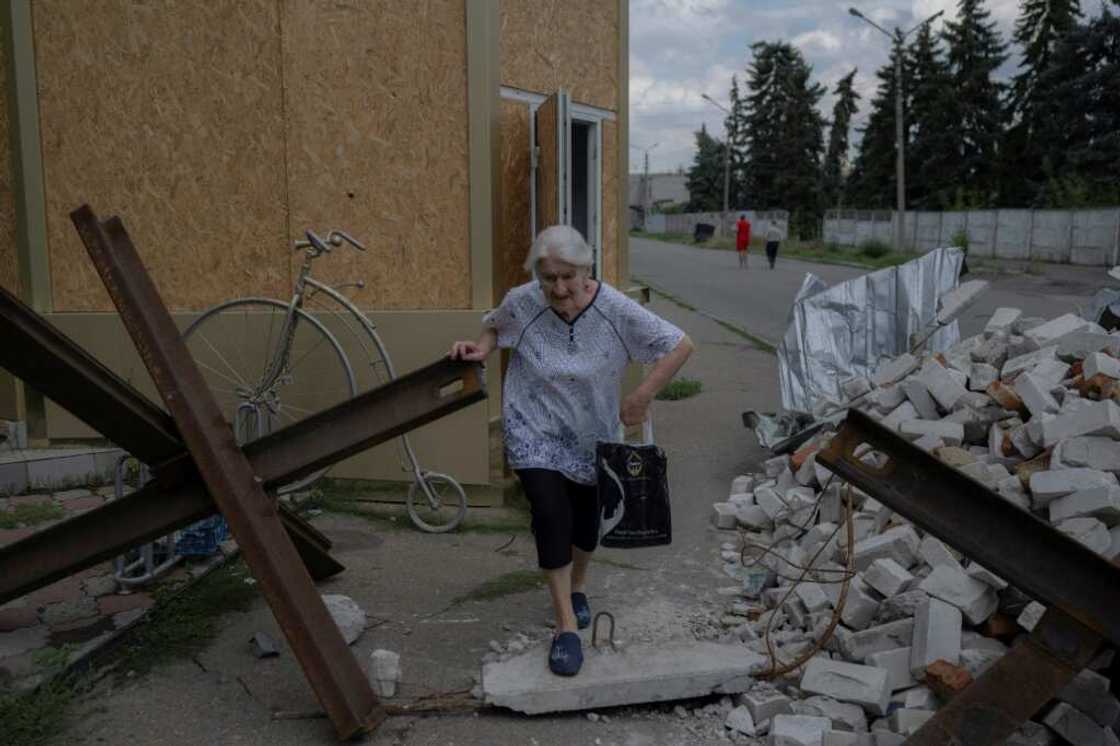
Source: AFP
PAY ATTENTION: Click “See First” under the “Following” tab to see Legit.ng News on your Facebook News Feed!
When Nadiya Gorbunova speaks about her neighbours -- queuing at a post office in the Ukrainian town of Mykolaivka -- she crosses the street and lowers her voice.
There are, she suspects, roughly 80 per cent of her fellow residents rooting for the Russian troops across the river to overrun her hometown in the eastern Donbas region and claim it for the Kremlin.
"There are no physical clashes, but the pro-Russians are constantly trying to be aggressive," 58 year-old Gorbunova told AFP with a conspiratorial tone.
Her own allegiance is clear. She carries a kitsch tote bag featuring a saintly Ukrainian woman destroying an enemy tank with a flaming sword.
This bitter divide between neighbours is playing out across villages, towns and cities caught on the frontline in the vicious tug-of-war between Russian and Ukrainian forces.
"There is no love, no harmony," Gorbunova says.
PAY ATTENTION: Subscribe to Digital Talk newsletter to receive must-know business stories and succeed BIG!
Divided 'in their souls'
The conflict began in Donbas in 2014 following a pro-Western revolution in Ukraine and Russia's annexation of Crimea.
Ukrainian forces fought off pro-Russian separatists who received military and financial support from Russia and who seized part of the region.
The region's inhabitants are predominantly Russian speaking, but it is not majority ethnically Russian.
The true extent of pro-Russian sentiment is hard to gauge.
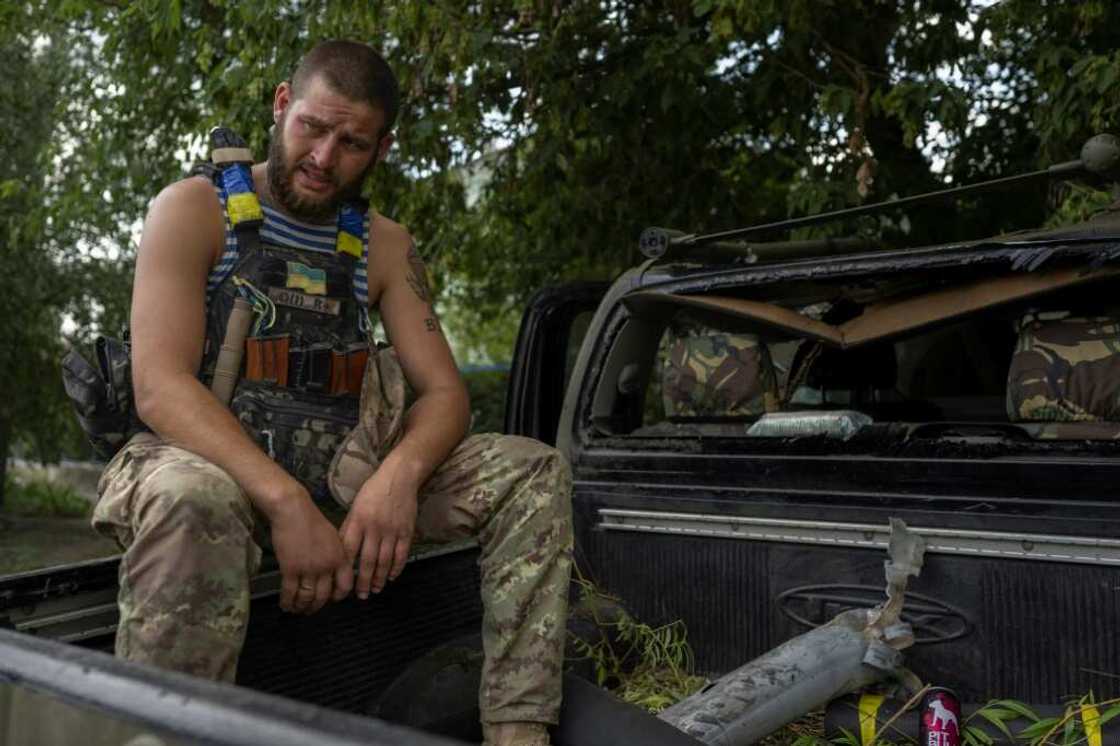
Source: AFP
The frontline city of Bakhmut in Donetsk is the area where the Russian offensive has been its most successful over the past month in Donbas, according to the UK ministry of defence.
The constant sound of artillery fire echoes off largely abandoned apartment buildings and the town is bisected by tank traps and roadblocks.
It is also split along other lines.
"In their souls, people are divided into two camps," said 52-year-old Sergey Nikitin.
"Everyone has his own opinion, and everyone keeps his mouth shut."
Nevertheless Nikitin gives not-so-subtle clues about his beliefs.
He talks about "degradation" in Ukraine, the closure of factories since the end of the Soviet Union and the potential for employment opportunities in Russia.
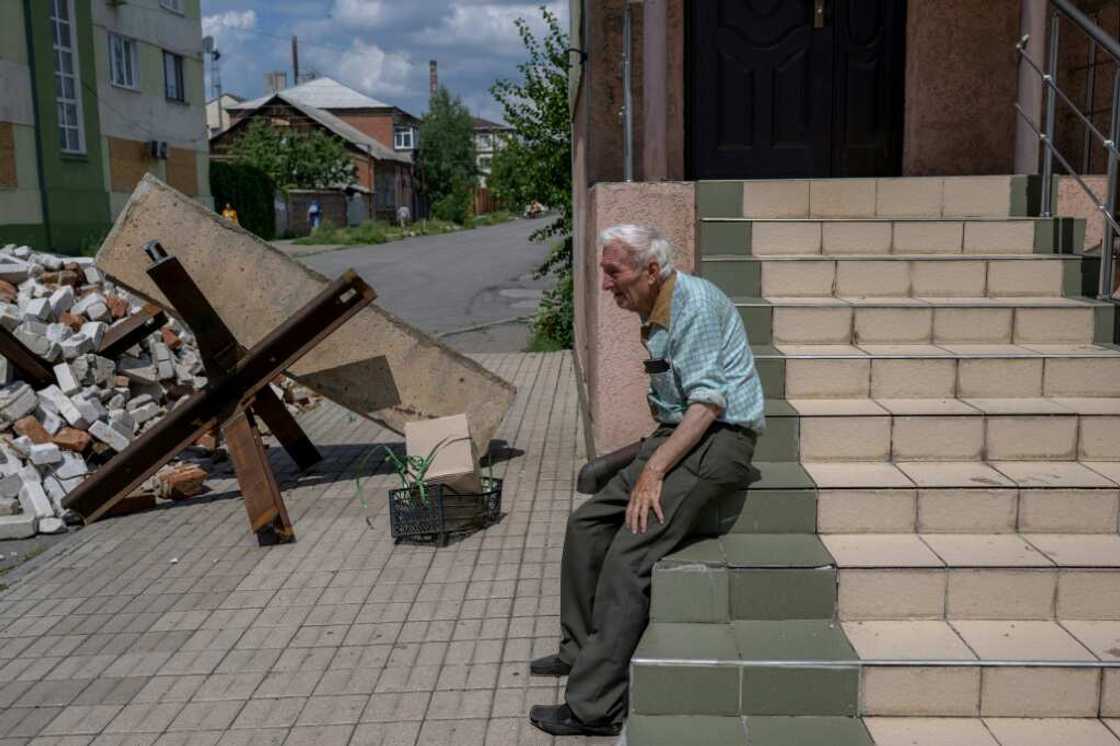
Source: AFP
Mykhaylo Matsoyan, 38, recalls overhearing his neighbours in Bakhmut discussing "that it would be great if the Russians would come".
He confronted them and "it almost came to a fight, so I had to leave," he says.
"You can't prove nothing to fools."
But another resident exiting a pharmacy does keep quiet about his political loyalties.
"We are all waiting for peace. I don't distinguish. I love everyone, I am for peace," said 40-year-old Dmitriy before hurrying away.
'We don't care'
"We meet people who have a pro-Russian position. And I explain to them that it was not we who came to their land with weapons," says 56-year-old soldier Sergei, from central Ukraine, sucking down coffee at a roadside kiosk.
"I always say the following: if I come to my neighbour with bread, he will set the table, but if I come with a weapon, he will fight back."
The city of Soledar is as close to Russian-held territory as it is possible to get.
Moscow's troops are believed to be on the outskirts, potentially inside the city limits already.
The shelling here is constant, the devastation to the city is complete.
There is no tension on the streets: the situation is too dire for that.
"We are waiting for all this to pass," says 59-year-old Oleg Makeev.
"We don't care -- either Ukrainians or Russians, we just need a peaceful life, and nothing more."
Source: AFP

